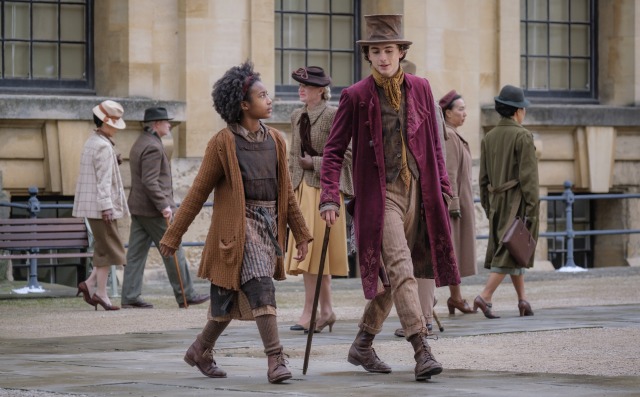“Wonka” is a mix of melodic and dream coordinated and co-composed by Paul Lord. The film recounts the narrative of the starting points of Willy Wonka, a person from Roald Dahl’s 1964 book “Charlie and the Chocolate Manufacturing plant,” the 2005 film of a similar name, and the 1971 film “Willy Wonka and the Chocolate Production line.” It debuted on November 28th in London and turned into a film industry hit, netting over a portion of a billion bucks around the world.
For the people who have seen the exemplary from the seventies, a film making sense of how Willy Wonka, the naughty chocolate producer, began his business without a doubt wasn’t required. Nonetheless, in the event that we need to get through one, we should be happy it’s engaging, creative, legitimate, and sufficient to divert from the way that it’s for the most part a straight line narratively – on the off chance that the point isn’t to see, the movie producers have a lot of pleasant interruptions.

“Wonka” is a melodic, very much like the 1971 film it utilizes as a reason for its principal character and the making of the world and tone of the film. I should concede that the melodies are by and large great, yet including the most well known and dearest tune from the first film implies that the new melodies will not have such an enduring effect. One person here discusses one of those more seasoned tunes as “horrendously appealing” and that it won’t ever leave the audience’s psyche – that is valid on the grounds that most watchers will perceive the main beat before the person even beginnings singing it.
It’s significant here that, in spite of the difficulties of unavoidable and direct correlation, this movie doesn’t avoid it. The makers plainly accept that there could be something else to this material besides utilizing some notable, adored protected innovation to bring in cash. The film speaks the truth about its personality, the creative world it makes significantly more charming with its advancements in chocolate, and the unique tone of the 1971 film, which mixed wistfulness and fiendishly erratic humor to such extraordinary impact. Most importantly, Ruler realizes that work is expected to address that combination of tones assuming the film is to get any opportunity, and the outcome is incredibly earnest in its feelings and bright from every other angle.
In the first place, we meet Willy Wonka (Timothée Chalamet), who shows up in an undefined European city with simply a small bunch of coins that won’t last him daily. Willy’s just dream is to make chocolates from the best and most extraordinary fixings, open a shop, and offer his adoration for sweet treats with the world. As it works out, there are numerous issues. The first is that the business is constrained by a triplet called the Chocolate Cartel, and they value no contest, particularly one as capable as Willy, who needs to disturb their syndication.
One more sets of entanglements are the proprietors of laundries, Mrs. Scrubbit (Olivia Colman) and Mr. Rankle, who lease rooms to frantic individuals like Willy and trap them in long stretches of constrained work. Willy should figure out how to escape the clothing to sell his treats, and for that, he looks for help from vagrant Noodle, whose first nibble of chocolate scatters her laziness towards her own predetermination.
Regardless, the plot is only a reason for Willy to be particular and to exhibit his abilities, which frequently have purposeful or incidental secondary effects like levitation and hair development. En route, he causes easy going disarray in this side of the world, sings, moves, and structures a little gathering of pariahs to challenge the control and defilement of the Chocolate Cartel. Chalamet is at the core of the greater part of this, and his exhibition unquestionably looks at to the extraordinarily evil depiction of Wonka in the ’71 film, yet here, he gave a thoughtful turn to the person.
It helps that he is joined by a great rundown of supporting entertainers who completely grasp the tone of the material. Notwithstanding the previously mentioned, we have Keegan-Michael Key as the police boss and Rowan Atkinson as the church building minister who both accept kickbacks as chocolate. There’s likewise carefully scaled down yet normally fixated Hugh Award as an Oompa-Loompa who gathers an obligation Willy didn’t realize he had made, as well as, in flashbacks, Sally Hawkins as Willy’s mom, who showed him all that he is familiar with chocolate and liberality.
“Wonka” is a splendid, clear, and happy family melodic that grows the universe of the exemplary person Willy Wonka in an exuberant and contacting way.
